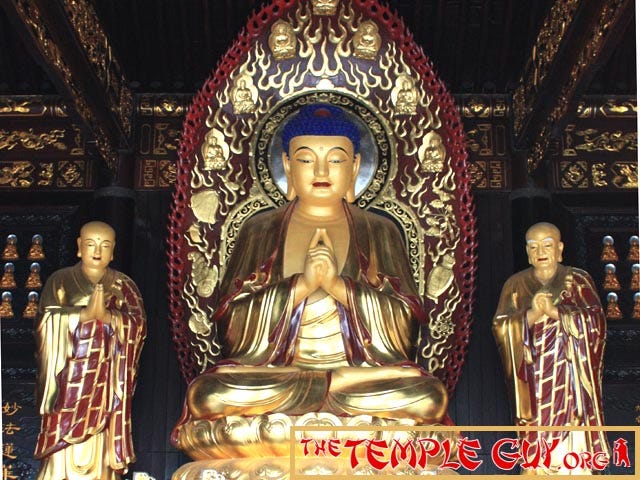"Ni Xin Fo Ma?"
Bouncing around from one Chinese Buddhist temple to another, I was frequently asked by curious strangers, "Ni xin fo ma?" which I understood to mean, "Do you believe in Buddha?" or more simply, "Are you a Buddhist?" (The Chinese have few boundaries when it comes to personal questions; I wish I had a yuan for every time I was asked my weight, or how much money I made.)
Lacking the language skills to explain the subtleties of my position, I generally answered, "Wo xin," which I hope meant, "I believe."
But this could be misleading.
--------
There are two ways to understand this question. One is, "Do you believe in the Buddha's power to help you when you call on him?" The second is, "Do you believe that the Buddha's teachings can be helpful to you in daily life?"
To the second question, a resounding YES! I believe the Buddha's teachings would be useful even if a man named Siddhartha Gautama had never lived. Unlike the saving action of Christ (as Christians teach it), there is no specific action of the Buddha that saves. We can live better lives by following the teachings, regardless of the source. In this respect, Buddhism is clearly more of a philosophy than a religion.
But das volk WILL apotheosize. There's a word for ya! It means to deify someone, turn her or him into a god. It has happened with everyone from emperors to people's mamas, informally at least. And it is what I believe people have done with the Buddha.
If I did believe in a Buddha, it would be this one: Vairochana, or the "Great Sun" Buddha. What could be a more reasonable thing to believe in than the sun? Daci'en Temple, Xi'an, China
Whatever connection I have with Buddhism, it has no supernatural elements. So I would answer no to the first way of understanding the question, "Do you believe in Buddha?" I don't believe that some Buddha (or Bodhisattva, for that matter) is "up there" somewhere waiting to do my bidding.
--------





